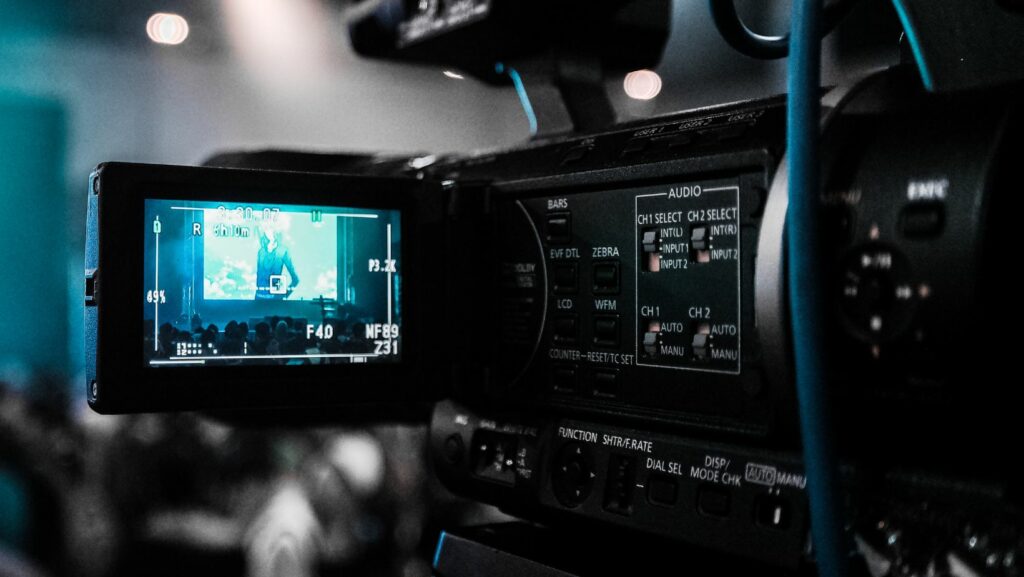Iconic Songs From Movies
Iconic songs enhance the emotional depth of a film. Tracks like “The Circle of Life” from The Lion King reinforce the narrative and resonate with audiences long after viewing. Music triggers memories; the right song deepens a viewer’s connection to the story.
Famous tracks elevate a movie’s commercial success. “Eye of the Tiger” from Rocky III boosted ticket sales and music charts simultaneously. This synergy between film and music fosters a broader cultural impact, embedding the song within public consciousness.
Soundtracks influence a film’s identity. The Ghostbusters theme song, for instance, becomes synonymous with the movie itself. These melodies shape audience expectations and experiences, making films more memorable.
Award recognition often follows impactful movie songs. “Let It Go” from Frozen won the Academy Award for Best Original Song, further elevating the film’s profile. Awards validate the significance of a song and cement its place in cinematic history.
Emotionally powerful songs aid in storytelling. “Unchained Melody” in Ghost enhances the romantic ambiance and depth of key scenes. These tracks do more than entertain; they provide narrative support that heightens the film’s impact.
Iconic songs play a crucial role in shaping the audience’s experience, enhancing narrative elements, and boosting the film’s cultural and commercial appeal.
Memorable Tunes That Defined Generations
Iconic songs from movies often encapsulate the essence of their times. These tracks achieve legendary status, creating lasting memories for the generations they touch. Songs from the 1970s and earlier left a lasting impression on cinema and culture. “Moon River” from Breakfast at Tiffany’s (1961) remains a timeless classic. Audrey Hepburn’s gentle rendition underscored the film’s delicate narrative. Another significant track is “Mrs. Robinson” by Simon & Garfunkel from The Graduate (1967), adding depth to the movie’s exploration of societal norms. The 1970s witnessed disco sensation “Stayin’ Alive” by the Bee Gees from Saturday Night Fever (1977), which defined the disco era and became a global hit.
The 1980s produced numerous unforgettable tunes. “Eye of the Tiger” by Survivor, specifically written for Rocky III (1982), became an anthem of motivation and perseverance. Flashdance (1983) featured “Flashdance… What a Feeling” by Irene Cara, which captured the spirit of chasing dreams and achieving them. Additionally, “Don’t You (Forget About Me)” by Simple Minds is forever linked to The Breakfast Club (1985), encapsulating teenage angst and rebellion of the era.
The 1990s offered a rich array of iconic movie songs. Whitney Houston’s powerful “I Will Always Love You” from The Bodyguard (1992) demonstrated the immense impact of music on film storytelling. “My Heart Will Go On” by Celine Dion from Titanic (1997) became synonymous with the film’s tragic love story and achieved global fame. “Circle of Life” from The Lion King (1994) resonated with audiences of all ages, capturing the film’s themes of life and renewal.
Songs from the 2000s and beyond continue to influence and define cinematic experiences. Eminem’s “Lose Yourself” from 8 Mile (2002) offered compelling insight into the struggles of an aspiring artist, enhancing the film’s narrative. “Let It Go” from Frozen (2013) not only won an Academy Award but also became a cultural phenomenon, especially among younger audiences. More recently, “Shallow” from A Star Is Born (2018) by Lady Gaga and Bradley Cooper achieved critical acclaim and connected deeply with viewers through its raw emotionality. By highlighting these landmark tracks across different eras, the significant role of music in shaping film narratives and viewer experiences becomes evident.
Behind the Scenes: The Making of Iconic Movie Songs
Directors and musicians frequently collaborate closely to create memorable movie songs. Visionary directors like Steven Spielberg work with talented composers such as John Williams to produce iconic scores. Spielberg and Williams, through their partnership, crafted unforgettable themes for films like Jaws and E.T. the Extra-Terrestrial. Another notable collaboration, Tim Burton and Danny Elfman, resulted in memorable music for films like The Nightmare Before Christmas and Edward Scissorhands.  These director-composer partnerships often lead to a seamless blend of visual and auditory storytelling, enhancing the overall cinematic experience.
These director-composer partnerships often lead to a seamless blend of visual and auditory storytelling, enhancing the overall cinematic experience.
Music supervisors play a crucial role in selecting and integrating songs into films. They possess a keen understanding of how music influences storytelling. Mary Ramos, for example, is known for her work with Quentin Tarantino, where she carefully curates soundtracks that match the director’s eclectic style. Music supervisors must negotiate licensing rights and ensure songs align with the film’s emotional and narrative arcs. Their expertise contributes significantly to a film’s atmosphere and audience connection, as seen with Alexandra Patsavas’ work on Twilight, where the music became integral to the film’s appeal.

